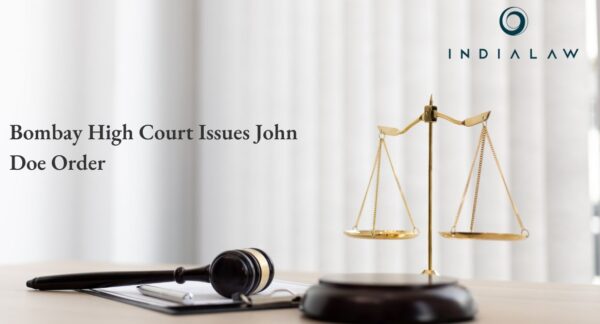Bombay High Court: Reiterates The Principle Of Exhausting Alternate Remedies


In a recent ruling[1], the Hon’ble Bombay High Court (“HC”) reiterated the long-standing legal principle that litigants must exhaust all available alternate remedies before invoking writ jurisdiction. The instant case in point involves M/s. Venus Worldwide Entertainment (“Petitioner”), which attempted to bypass statutory procedures by filing a writ petition, thereby, avoided the alternate remedy provided under the Maharashtra Value Added Tax Act, 2002 (“said Act”). The HC, however, rejected the plea.
Brief Facts of the Case:
The instant matter in question revolves around a writ petition filed by the Petitioner against an order dated 28th March 2024, invoking the said Act. The Petitioner sought to challenge the actions taken by the Respondent No.3, arguing that no proceedings could have been initiated under the said Act, as the dispute had already been settled under the Maharashtra Settlement of Arrears of Tax, Interest, Penalty or Late Fee Act, 2019 (“said Settlement Act, 2019”). The Petitioner sought to bypass these statutory remedies and proceeded directly with a writ petition.
Analysis by the Hon’ble Court:
The HC observed that the Petitioner had resorted to misleading averments in its pleadings, attempting to create a narrative that the Ld. Tribunal was incapable of addressing the jurisdictional issues. This attempt to avoid the alternate remedy available under the said Act was seen as an effort to bypass the established procedure, which allows for an appeal under Section 26 of the said Act[2].
One key argument presented by the Petitioner was the claim that their case fell under the provisions of the Settlement Act, 2019, thus, negating the need for further proceedings under the said Act. The HC, however, pointed out that this argument had already been considered and rejected. Furthermore, the Ld. Tribunal is fully competent to examine the correctness of such decisions, ensuring that the law is followed appropriately. In the absence of any valid reason to bypass the alternate remedies, the Petitioner’s attempts to evade the statutory process were seen as an improper tactic.
The HC referred to its previous judgment in Oberoi Constructions Ltd. vs. The Union of India and Ors.[3], where it had extensively discussed the trend of bypassing alternate remedies and approaching the courts directly under Articles 226[4] and 227[5] of the Constitution. The HC expressed concern over this growing tendency and reaffirmed the established practice of exhausting all available remedies before invoking the jurisdiction of the higher courts.
By following the reasoning outlined in that case, the HC found that the Petitioner’s approach was one of “taking chances” without any reasonable justification, and as such, declined to entertain the writ petition.
In author’s opinion, the Hon’ble Bombay High Court’s decision in the present case serves as a critical reminder of the importance of following the proper legal procedures and exhausting all available remedies before approaching the higher courts. The High Court’s reiteration of this principle not only ensures the efficient functioning of the judiciary but also discourages parties from attempting to “take chances” with the legal process. For litigants, this judgment reinforces the need to respect the prescribed statutory channels, ensuring that disputes are resolved in an orderly and legally sound manner.
[1] Writ Petition (L) No.15648 of 2024, M/s. Venus Worldwide Entertainment Pvt. Ltd. v. The State of Maharashtra and Ors, decided on 2nd December, 2024.
[2] 26. Appeals.— (1) 1 [An appeal, from every order, not being an order mentioned in sub-section (2) of this section and sub-section (2) of section 85] passed under this Act or rules or notification, shall lie if the order is made,— (a) by a Sales Tax Officer or an Assistant Commissioner, or any other officer subordinate thereto, to the Deputy Commissioner ; (b) by a Deputy Commissioner or Senior Deputy Commissioner, to the Joint Commissioner ; (c) by a Joint Commissioner, 2 [Additional Commissioner, Advance Ruling Authority] or the Commissioner, to the Tribunal ; (2) In the case of an order passed in appeal by a Deputy Commissioner or a Joint Commissioner, a second appeal shall lie to the Tribunal.
[3] Writ Petition (L) No.33260 of 2023.
[4] 226. Power of High Courts to issue certain writs
(1)Notwithstanding anything in article 32 every High Court shall have powers, throughout the territories in relation to which it exercise jurisdiction, to issue to any person or authority, including in appropriate cases, any Government, within those territories directions, orders or writs, including writs in the nature of habeas corpus, mandamus, prohibition, quo warrantor and certiorari, or any of them, for the enforcement of any of the rights conferred by Part III and for any other purpose.[(1-A) The power conferred by clause (1) to issue directions, orders or writs to any Government, authority or person may also be exercised by any High Court exercising jurisdiction in relation to the territories within which the cause of action, wholly or in part, arises for the exercise of such power, notwithstanding that the seat of such Government or authority or the residence of such person is not within those territories.”; was inserted after 15th Amendment][Editorial comment-The Constitution (Fifteenth Amendment) Act, 1963, this was amended to include clause (1A). It states that the High Court, whose territorial jurisdiction the cause of action originates under, may also have the ability to issue directives, orders, or writs to any government, authority, or person, even if their seat or place of abode is beyond the high court’s territorial jurisdiction.]
(2)The power conferred by clause (1) to issue directions, orders or writs to any Government, authority or person may also be exercised by any High Court exercising jurisdiction in relation to the territories within which the cause of action, wholly or in part, arises for the exercise of such power, notwithstanding that the scat of such Government or authority or the residence of such person is not within those territories.
(3)Where any party against whom an interim order, whether by way of injunction or stay or in any other manner, is made on, or in any proceedings relating to, a petition under clause (1), without–(a)furnishing to such party copies of such petition and all documents in support of the plea for such interim order; and(b)giving such party an opportunity of being heard, makes an application to the High Court for the vacation of such order and furnishes a copy of such application to the party in whose favour such order has been made or the counsel of such party, the High Court shall dispose of the application within a period of two weeks from the date on which it is received or from the date on which the copy of such application is so furnished, whichever is later, or where the High Court is closed on the last day of that period, before the expiry of the next day afterwards on which the High Court is open; and if the application is not so disposed of, the interim order shall, on the expiry of that period, or, as the case may be, the expiry of the said next day, stand vacated.
(4)The power conferred on a High Court by this article shall not be in derogation of the power conferred on the Supreme Court by clause (2) of article 32.
[5] 227. Power of superintendence over all courts by the High Court
(1)Every High Court shall have superintendence over all courts and tribunals throughout the territories interrelation to which it exercises jurisdiction.
(2)Without prejudice to the generality of the foregoing provisions, the High Court may–(a)call for returns from such courts;(b)make and issue general rules and prescribe forms for regulating the practice and proceedings of such courts; and(c)prescribe forms in which books, entries and accounts shall be kept by the officers of any such courts.
(3)The High Court may also settle tables of fees to be allowed to the sheriff and all clerks and officers of such courts and to attorneys, advocates and pleaders practising therein:
Provided that any rules made, forms prescribed or tables settled under clause (2) or clause (3) shall not be inconsistent with the provision or any law for the time being in force, and shall require the previous approval of the Governor.
(4)Nothing in this article shall be deemed to confer on a High Court powers of superintendence over any court or tribunal constituted by or under any law relating to the Armed Forces.




